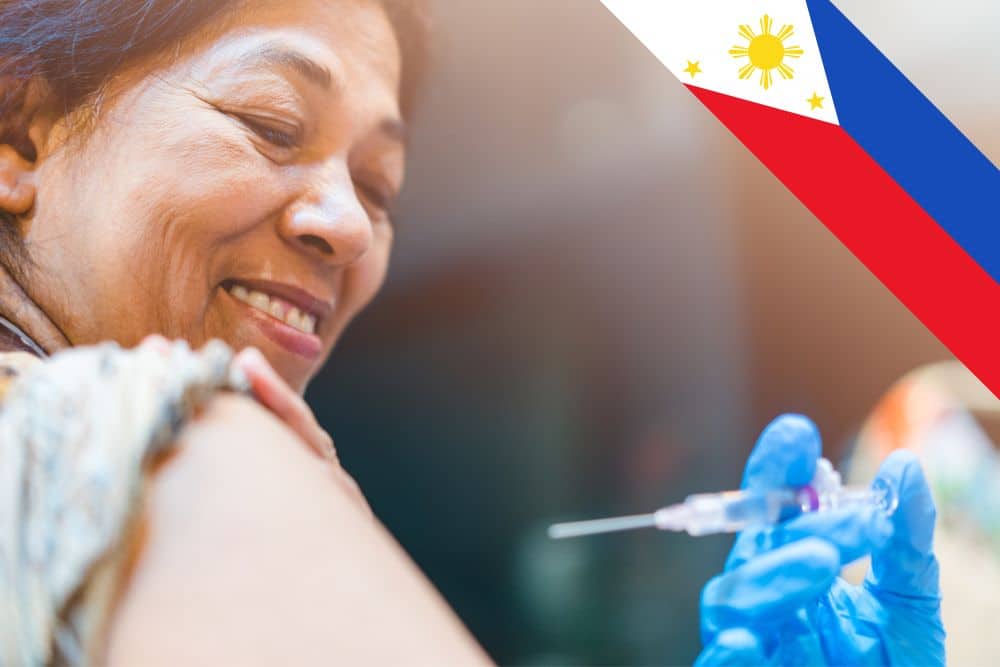Caloocan City Mayor Dale Gonzalo “Along” Malapitan, announced the launch of a free vaccination program to combat various strains of the human papillomavirus (HPV).
The initiative seeks to bolster the immunity of teenage girls and immunocompromised individuals against potential infections and complications associated with HPV.
Understanding HPV and Its Risks
HPV infections are primarily transmitted through sexual intercourse with an infected individual, as highlighted by the city’s Health Department. While common symptoms include genital and anal warts, in rare instances, HPV infections can lead to the development of multiple types of cancers, notably cervical cancer in women.
City’s Response and Vaccination Program Details
Despite the prevalence of HPV infections, the city government has yet to release specific data on teenage HPV cases in recent months. However, Mayor Malapitan commended the city health office for its proactive approach in launching the vaccination program.
The program targets individuals aged nine to 14, as this age group is deemed critical in establishing a robust defence against HPV-related complications later in life. The vaccination protocol consists of two doses administered six months apart, ensuring optimal protection against HPV infections.
Encouraging Participation and Ensuring Safety
To encourage participation, Mayor Malapitan called upon parents and guardians to advocate for their children’s vaccination. He underscored the significance of the free vaccine shots administered by trained city health personnel. He also urged families to take advantage of this opportunity.
Assuring the safety and efficacy of the vaccines, Mayor Malapitan reiterated that the inoculations have undergone rigorous evaluation by experts. Additionally, he reminded the public that the HPV vaccine consists of two doses administered six months apart. Parental consent is also required for minors receiving the shots.
Community Outreach and Education
In recognition of the vital role that community engagement and education play in public health initiatives, the Caloocan City government has laid out comprehensive plans for community outreach and educational campaigns to complement the HPV vaccination program.
-
Tailored Outreach Initiatives:
Tailor outreach initiatives to reach different demographics effectively. This includes targeting schools, community centres, religious institutions, and other local gathering places to ensure maximum outreach and participation.
-
Interactive Workshops and Seminars:
Organise interactive workshops and seminars led by healthcare professionals. These sessions will provide a platform for residents to ask questions, dispel myths, and gain clarity on the vaccination process and its benefits.
-
Collaborative Partnerships:
Forge partnerships with local healthcare providers, non-profit organisations, and advocacy groups. By pooling resources and expertise, these collaborations can amplify the reach and impact of educational campaigns, ensuring that accurate information about HPV and vaccination is disseminated widely.
-
Multi-lingual Informational Materials:
Language can be a barrier to accessing crucial health information in a culturally diverse city like Caloocan. To address this challenge, the city plans to develop multilingual informational materials. These include pamphlets, posters, and digital resources, to ensure that all residents can access vital information about HPV and the vaccination program in their preferred language.
-
Peer-to-Peer Education:
Recognising the influence of peer networks, the city government will empower community leaders, youth advocates, and peer educators to disseminate information about HPV and vaccination within their respective circles. By leveraging existing social networks, this peer-to-peer approach can effectively disseminate information and encourage participation among hard-to-reach populations.
-
Mobile Clinics and Vaccination Drives:
Deploy mobile clinics and conduct vaccination drives to increase accessibility to vaccination services, especially for residents in remote or underserved areas. These initiatives will bring vaccination services directly to the doorstep of communities. This will subsequently remove logistical barriers and ensure equitable access to HPV vaccination.
-
Continuous Monitoring and Feedback:
Throughout the outreach and educational campaigns, the city government will also actively monitor participation rates, gather feedback from residents, and assess the effectiveness of messaging and delivery channels. This iterative approach will allow for adjustments and refinements to outreach strategies. Therefore, this will ensure that they remain responsive to the community’s evolving needs.
Conclusion
The launch of Caloocan City’s free HPV vaccination program underscores the local government’s commitment to public health and disease prevention. The program targets teenage girls and immunocompromised individuals. Consequently, the initiative aims to mitigate the risks associated with HPV infections, including the development of certain cancers. Mayor Malapitan’s proactive leadership and advocacy for vaccination reflect a concerted effort to safeguard the community’s well-being.














